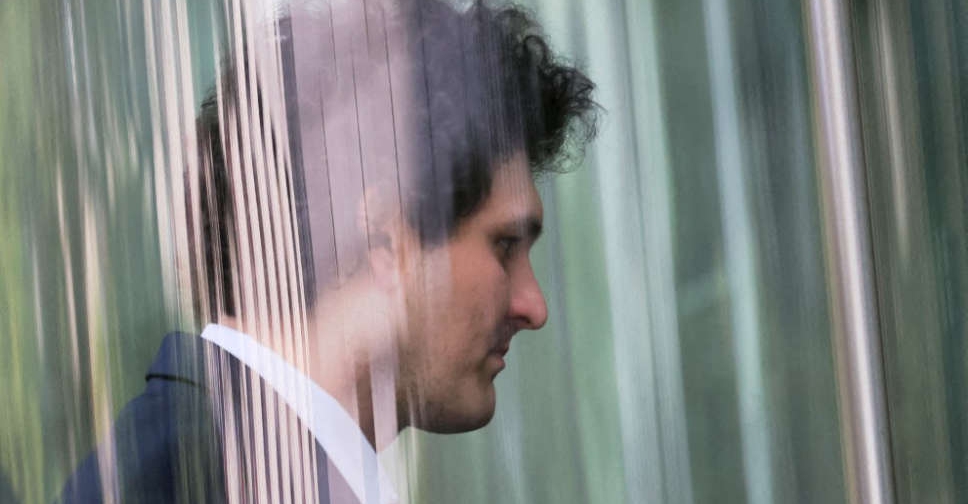
FTX founder Sam Bankman-Fried, testifying in his defence at his fraud trial, said that a "lot of people got hurt" when the cryptocurrency exchange collapsed last year but insisted he did not defraud anyone.
He also denied that he did not steal billions of dollars from customers.
Bankman-Fried fielded questions from his own lawyer on his first day of testimony with jurors present, admitting to making "mistakes" such as not putting in place a risk-management team while also seeking to lay blame on Caroline Ellison, the former CEO of his crypto-focused Alameda Research hedge fund who was a key witness for the prosecution.
The 31-year-old former billionaire's answers conformed to his longstanding position that he overlooked some aspects of his business as an entrepreneur building a fast-growing company from scratch but never set out to steal from people.
"We thought that we might be able to build the best product on the market," Bankman-Fried said during his six hours of testimony in Manhattan federal court. "It turned out basically the opposite of that. Many people got hurt - customers, employees - and the company ended up in bankruptcy."
Bankman-Fried has pleaded not guilty to two counts of fraud and five counts of conspiracy. If convicted, he could face decades in prison.
Prosecutors have accused Bankman-Fried of using FTX customer funds to prop up Alameda, make speculative venture investments and donate more than $100 million to U.S. political campaigns. He also is accused of scheming to cheat Alameda's lenders and FTX investors.
Responding in a calm-sounding tone to defence lawyer Mark Cohen's questions, Bankman-Fried said he believed funds used for sponsorships and real estate came not from FTX's customers, as prosecutors allege, but from the company's revenue or capital it received from equity investors. He said he borrowed from Alameda, which he owned, to make political donations.
Bankman-Fried sought to distance himself from specific actions he said three of his closest former colleagues - each pleaded guilty to fraud and testified against him at trial - took without his firsthand involvement.
While they testified he directed them to take specific actions that furthered the theft of customer funds and lying to investors and lenders, Bankman-Fried portrayed himself as an aloof CEO who trusted his subordinates.
'SEEMED REASONABLE TO ME'
Ellison, who was Bankman-Fried's former on-and-off girlfriend, testified on October 11 that he directed her to falsify Alameda's balance sheets to keep lenders at bay during a June 2022 crash in crypto markets.
Bankman-Fried on Friday testified that while Ellison provided him with a spreadsheet she was considering sending to a lender, he did not look at it in detail.
"I remember looking over it and saying that it seemed reasonable to me," said Bankman-Fried, who occasionally looked toward the jury while testifying.
Former FTX chief technology officer Gary Wang testified that Bankman-Fried directed him to implement changes in FTX's computer code that would give Alameda special privileges, such as a $65 billion (AED 238.75 billion) line of credit and an exemption from being automatically liquidated should its positions lose value, that enabled the theft of funds.
Bankman-Fried testified he asked Wang and FTX chief engineering officer Nishad Singh to prevent Alameda from accidentally being liquidated but did not know at the time that what his colleagues put in place was a feature that allowed Alameda to carry a negative balance.
Bankman-Fried was arrested in December 2022, a month after FTX declared bankruptcy following a wave of withdrawals from customers who grew concerned about the safety of their funds.
On Friday, Bankman-Fried sought to place much of the blame for Alameda's failure on Ellison. He testified that he became concerned that Ellison had failed to hedge against crypto market downturns and said that while she was a good manager, she was not focused on "risk management."
He also pushed back on her testimony that he thought his trademark unkempt appearance was an important part of FTX's image. He wore T-shirts and shorts while running FTX, he said, because they were "comfortable" and did not cut his hair because he was "busy and lazy." Bankman-Fried presented a clean-cut look to the jury, clad in a dark suit.
Bankman-Fried was questioned by both sides on Thursday without jurors present as the judge assessed what parts of his testimony would be admissible. Prosecutors will get their first chance to question Bankman-Fried with jurors present when they cross-examine him next week. Cohen said he would finish the direct examination on Monday morning.


 Nasdaq set to confirm bear market as Trump tariffs trigger recession fears
Nasdaq set to confirm bear market as Trump tariffs trigger recession fears
 Dana Gas and Crescent Petroleum exceed 500M boe in Khor Mor field
Dana Gas and Crescent Petroleum exceed 500M boe in Khor Mor field
 China to impose tariffs of 34% on all US goods
China to impose tariffs of 34% on all US goods
 Shares bruised, dollar crumbles as Trump tariffs stir recession fears
Shares bruised, dollar crumbles as Trump tariffs stir recession fears
 Wall Street futures sink as tariffs fuel recession fears
Wall Street futures sink as tariffs fuel recession fears




